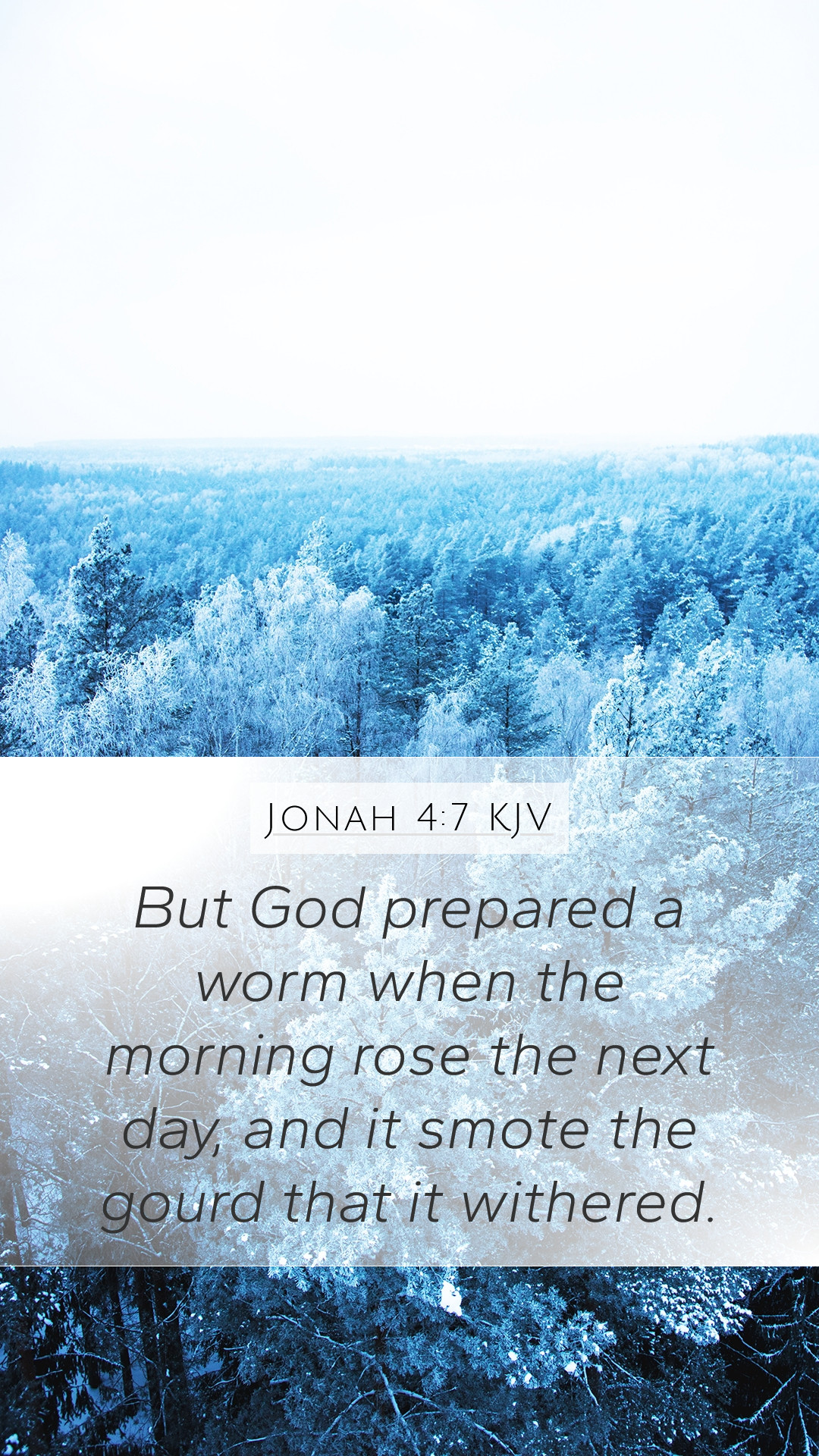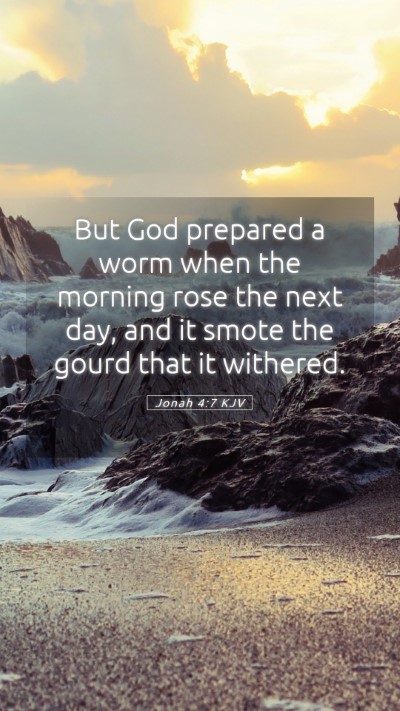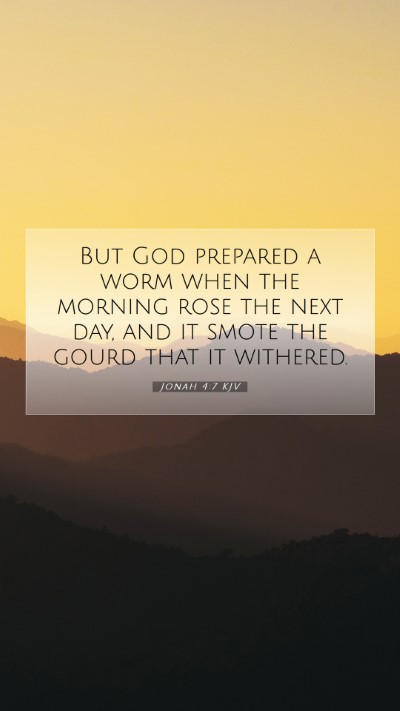Old Testament
Genesis Exodus Leviticus Numbers Deuteronomy Joshua Judges Ruth 1 Samuel 2 Samuel 1 Kings 2 Kings 1 Chronicles 2 Chronicles Ezra Nehemiah Esther Job Psalms Proverbs Ecclesiastes Song of Solomon Isaiah Jeremiah Lamentations Ezekiel Daniel Hosea Joel Amos Obadiah Jonah Micah Nahum Habakkuk Zephaniah Haggai Zechariah MalachiJonah 4:7 Meaning
What is the meaning of Jonah 4:7?
But God prepared a worm when the morning rose the next day, and it smote the gourd that it withered.
Jonah 4:7 Bible Verse Meaning
Bible Verse Meaning: Jonah 4:7
Verse Reference: Jonah 4:7
Verse Text: "But God prepared a worm when the morning rose the next day, and it smote the gourd that it withered."
Understanding Jonah 4:7
This verse encapsulates a crucial moment in the narrative of Jonah, illustrating both God's sovereignty and the nature of human discontentment. The story of Jonah is not just about his flight from God's command, but also about the lessons learned through divine intervention and human emotion.
Key Themes in Jonah 4:7
- Divine Providence: God’s control over creation is evident, showing that He can use even the smallest creatures, like a worm, to fulfill His plans.
- Human Discontent: Jonah’s reaction to the destruction of the gourd highlights a selfish sense of entitlement to comfort and ease.
- God's Lessons: Through the incident of the gourd and the worm, God teaches Jonah (and us) about compassion and the fleeting nature of worldly comforts.
Commentary Insights
Matthew Henry's Commentary
Matthew Henry emphasizes God's mercy and justice in this passage. He points out that God prepared the worm specifically to teach Jonah a lesson about his misplaced priorities. Jonah, who had shown great concern for a plant, demonstrates the irony of his lack of compassion for the people of Nineveh, whom he was reluctant to save.
Albert Barnes' Commentary
Albert Barnes notes that the preparation of the worm signifies God’s meticulous care in guiding Jonah toward a deeper understanding of His grace. The withering of the gourd symbolizes how quickly earthly treasures can fade away and how our emotional states can be influenced by external circumstances.
Adam Clarke's Commentary
Adam Clarke analyzes the imagery of the worm as a stark contrast to Jonah’s feelings towards his own comfort. Clarke highlights the pedagogical aspect of this episode—God using simple elements of nature to impart profound truths about life, suffering, and joy.
Application in Bible Study
When studying this verse, it is essential to reflect on the broader implications of Jonah’s experience. The narrative presents various opportunities for Bible verse understanding, commentary, and analysis.
- Relevance to Daily Life: How often do we value our comfort over the well-being of others?
- Learning from Jonah: In what ways can we be more compassionate and understanding toward those we might deem undeserving?
- Importance of God’s Lessons: What can we learn about the transient nature of our pleasures and the enduring nature of God’s love?
Related Verse Cross-References
- Matthew 6:26 - God's provision and care for all creation
- Luke 12:6-7 - The value of human beings in God's sight
- James 4:14 - The brevity of life and earthly existence
Conclusion
Jonah 4:7 serves as a powerful reminder of God's ability to teach us important lessons through nature and circumstance. The interplay of comfort and loss, along with our reactions to them, can lead us to deeper spiritual insights.
For those seeking further Bible verse explanations, Jonah's story connects with various themes such as divine mercy, human nature, and the transient nature of our earthly attachments. Engaging with this narrative can enrich your Bible study experience.


